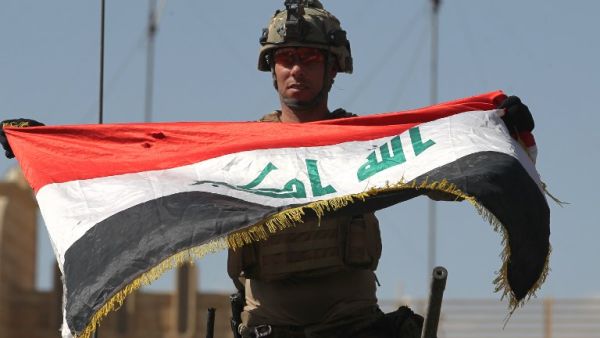Think Iraq and you may well think of Daesh, suicide bombings, war upon war, destruction or even Saddam Hussein.
The Middle Eastern nation has faced decade after decade of violence and insecurity. In the last three years alone, thousands of civilians and soldiers have been killed after the self-styled Islamic State took over swathes of the north in 2014.
- Iraq Celebrates Mosul's 'Liberation', But the 'Victory' is Tinged with Pain
- After Years of Sectarian Conflict, Many Iraqis Welcome Sadr's Gulf 'Rapprochement'
While Mosul was liberated last month, the fight is by no means over. On Sunday an operation was launched by government forces and the the Hashd al-Shaabi (Popular Mobilization Forces or PMU) collection of militias to retake Daesh-held Tal Afar.
But in spite of their suffering, young Iraqis are still looking to the future of their troubled nation with some optimism.
So, what do Iraqis think that their country needs post-Daesh?
A hashtag launched on Friday night called on Iraqis to suggest what #the_situation_in_Iraq_needs.
Many spoke out against the sectarianism that is widespread across all elements of Iraqi society.
Around 55 per cent of Iraqis are Shia, while approximately 40 per cent are Sunni, according 2017 data in the CIA Factbook.


One of the key sectarian issues facing Iraq currently is the power wielded by the Shia militias, many of whom receive Iranian support. The predominantly Shia militias of the PMU fighting against Daesh were accused by several rights organizations of committing violations against Sunni civilians, during the battle to retake Iraq's second city, Mosul.
Amnesty International said in its 2016/7 annual report that “paramilitary militias and government forces committed war crimes and other violations of international humanitarian law and human rights law, mostly against members of the Sunni Arab community.”
These included “extrajudicial executions, other unlawful killings and torture,” as well as forcible disappearance and destruction of property.
Despite widespread reports of sectarian war crimes, in November 2016, a law was passed designating the PMU a “military formation and part of the Iraqi armed forces”.
Several people responding to Saturday's hashtag suggested the need to reduce the influence of the Shia militias. Nonetheless, the PMU holds considerable popularity in Iraq, where many see them as war heroes.

Others criticized the nation’s politicians, which they suggested were corrupt.


Since 2015 an anti-government protest movement has been calling for institutional reform and an end to corruption. Demonstrations were quickly taken over by supporters of Iraqi Shia cleric Muqtada al-Sadr, a critic of Iranian influence in Iraq. Sadrists themselves have considerable representation in the Baghdad parliament.
Another criticized Masoud Barzani, President of Iraqi Kurdistan, who is pressing ahead with plans to hold an independence referendum in a month’s time, despite opposition from Baghdad and the US.
- Defying US, Baghdad, Iraqi Kurds to Hold September Referendum as Planned
- Kurdish Independence Referendum Untimely, Says Iraq's Abadi
Kurdistan is identified as an autonomous region in Iraq’s 2005 constitution.

Whatever their suggestions, the Iraqis using the hashtag expressed a desire to look to the future with hope for a “golden age” yet to come. This tweet received nearly 300 retweets:








